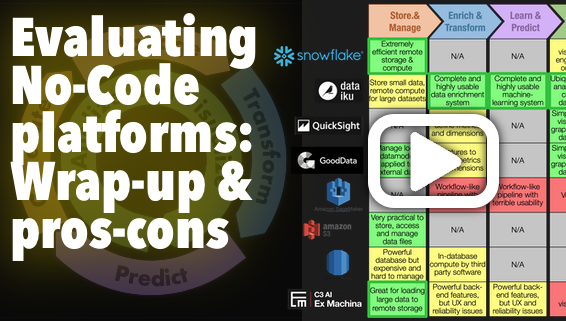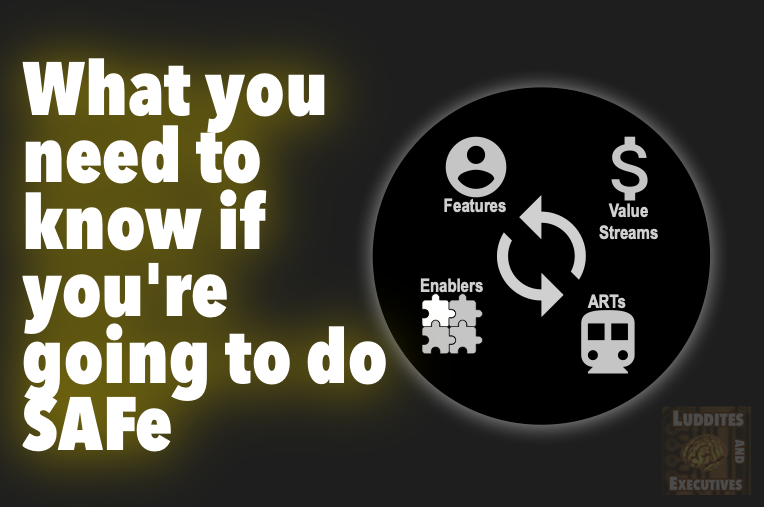
If I've been involved with governing Agile projects, read Forbes articles about Agile and whatnot, how do I know if I *really* understand it? What are the criteria, from the point of view of an Agilist, that show that you “understand Agile”?

The way "data quality" is being talked about is wrong, it misses important points about the problem of data in real world AI projects.
My view is that the largest room for improvement in model accuracy is not in the either/or of algorithm / data "quality".

How do Dataiku, C3.ai's ExMachina, Sagemaker, Snowflake, Quicksight and Gooddata join datasets, modify/enrich data, train a machine learning model, access and store data and create visualization graphs. With videos.

Where I emphasize that SAFe is not a framework for just organizing development teams and maintaining a backlog. SAFe pushes Agile management up into sections of the organizations that were hitherto relatively untouched by previous Agile framework implementation generations.

AI software development is exactly like any other software development, and completely different at the same time. AI is the process that blurs the boundary between data and software. The data becomes the algorithm. It's the ultimate implementation of the vision of Alan Turing's universal machine.

When should the question of algorithms come up in AI projects? AI algorithms do a lot of useful things. We look into the basics of algorithms here, what they do, their advantages and drawbacks and consider to what extent they will solve your problem.

Public hype about AI algorithms doing everybody's work for them, doomsday predictions of AI taking over humanity, AI is talked about as if the algorithms had agency. They don't. AI doesn't do what a lot of people pretend it does.

How do small teams in a regular business try to get value out of AI? Let's take a break from marveling at protein folding, AlphaZero and dancing robots. Let's talk about normal people trying to do AI. This is the first in a series of about 5 posts on getting started with AI projects.

This channel will be my take on what it is like to run businesses, lead teams and manage non-tech-core organizations (read: non-GAFA+, non-VC-funded, non-specialized-tech vendors) in a technology-heavy world.









